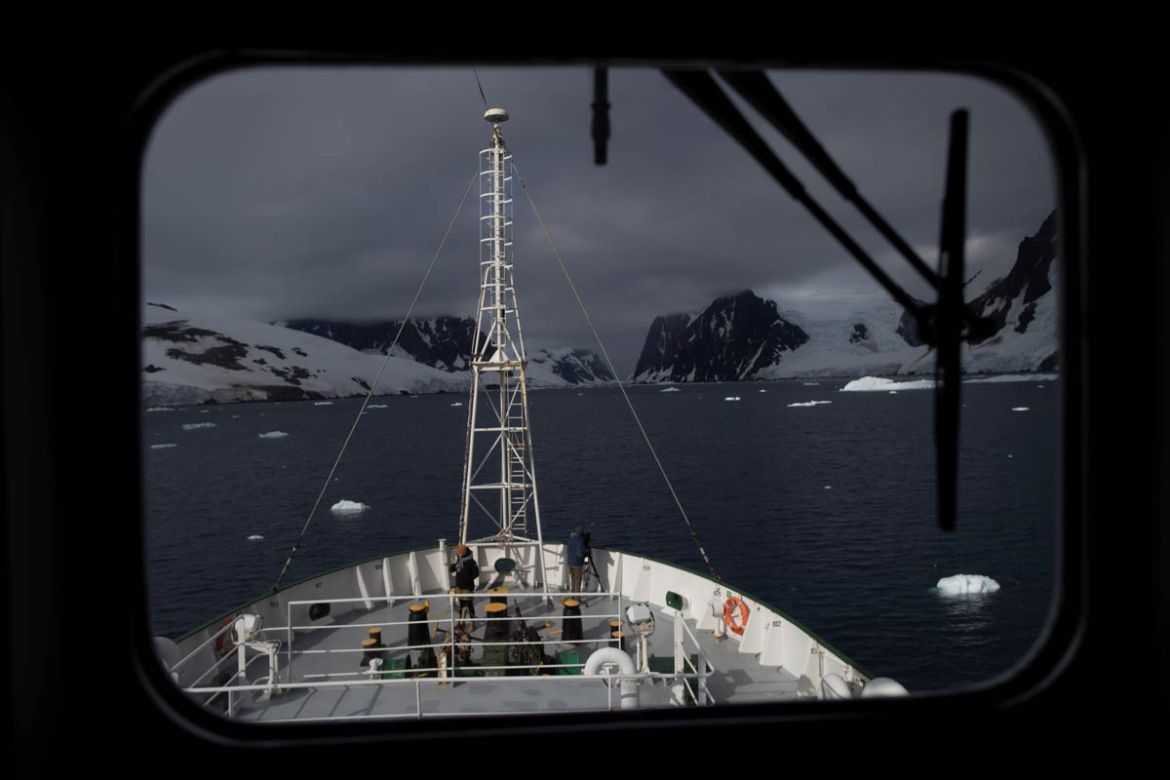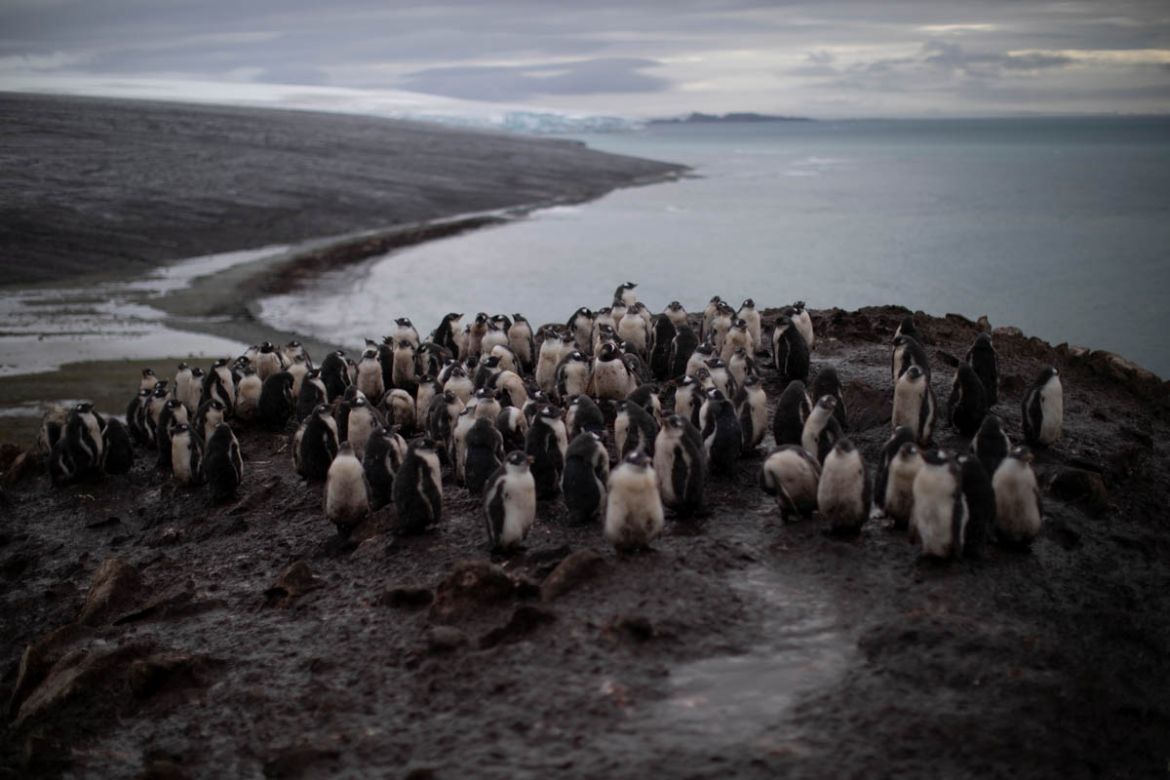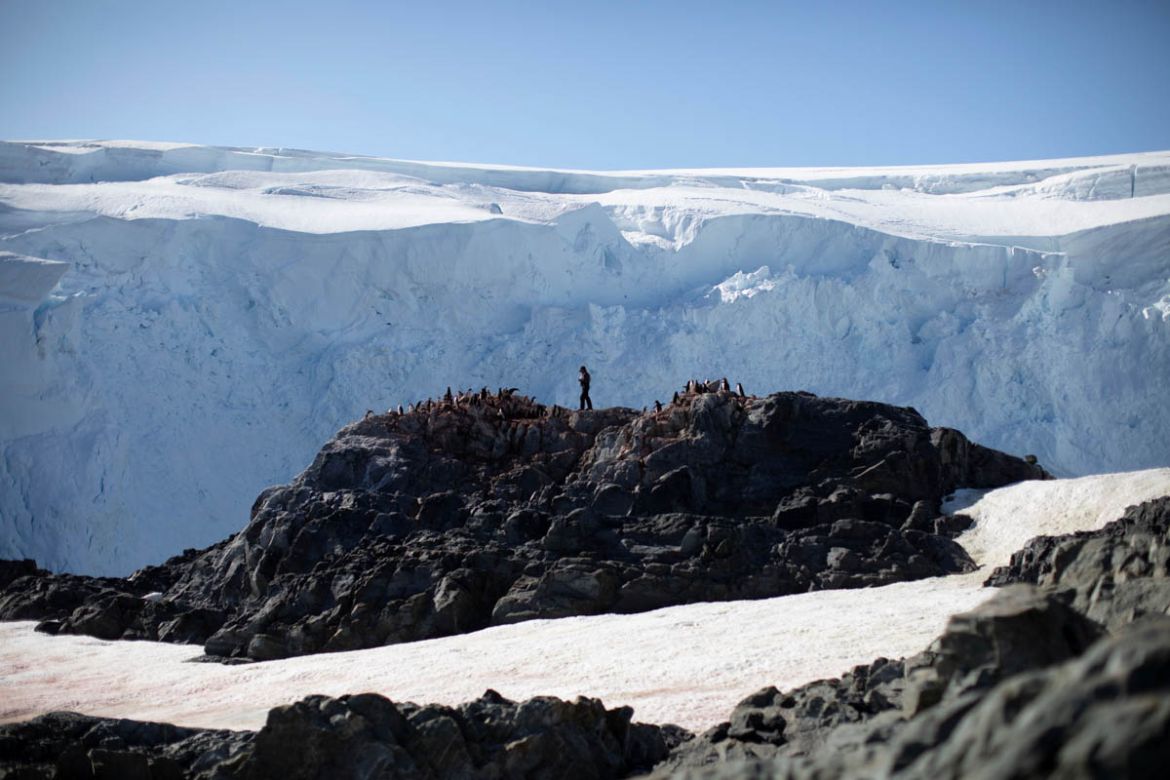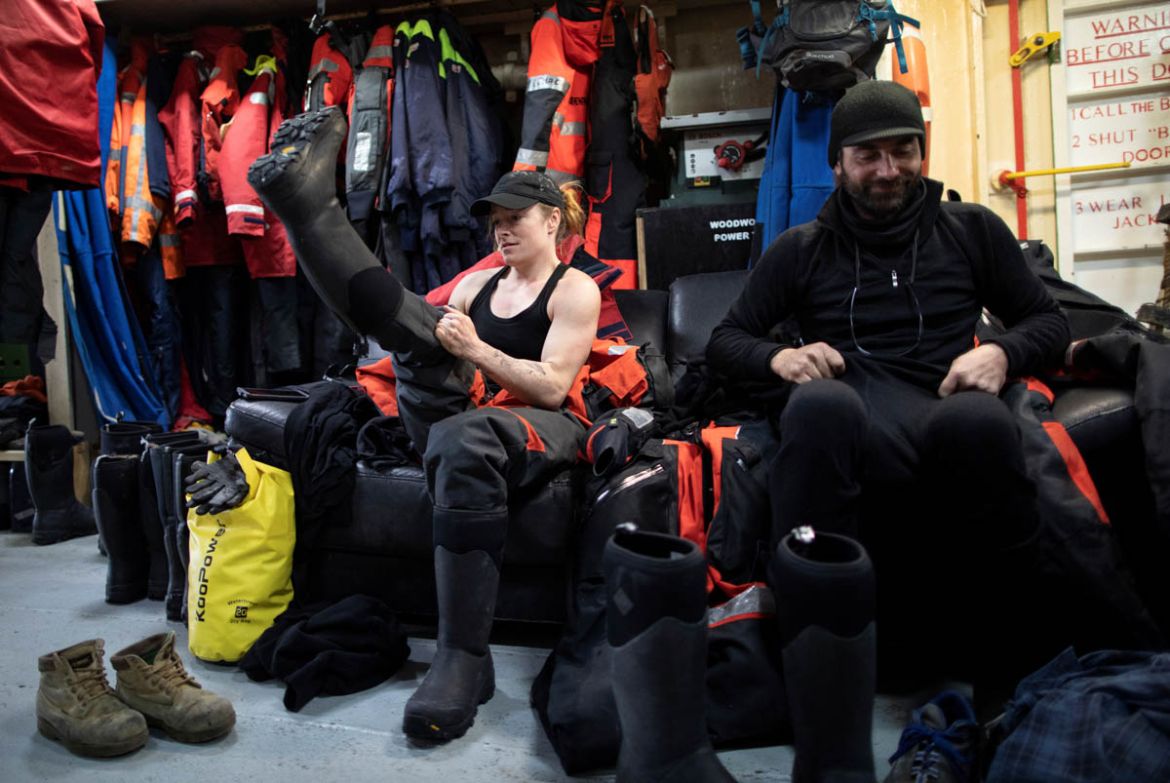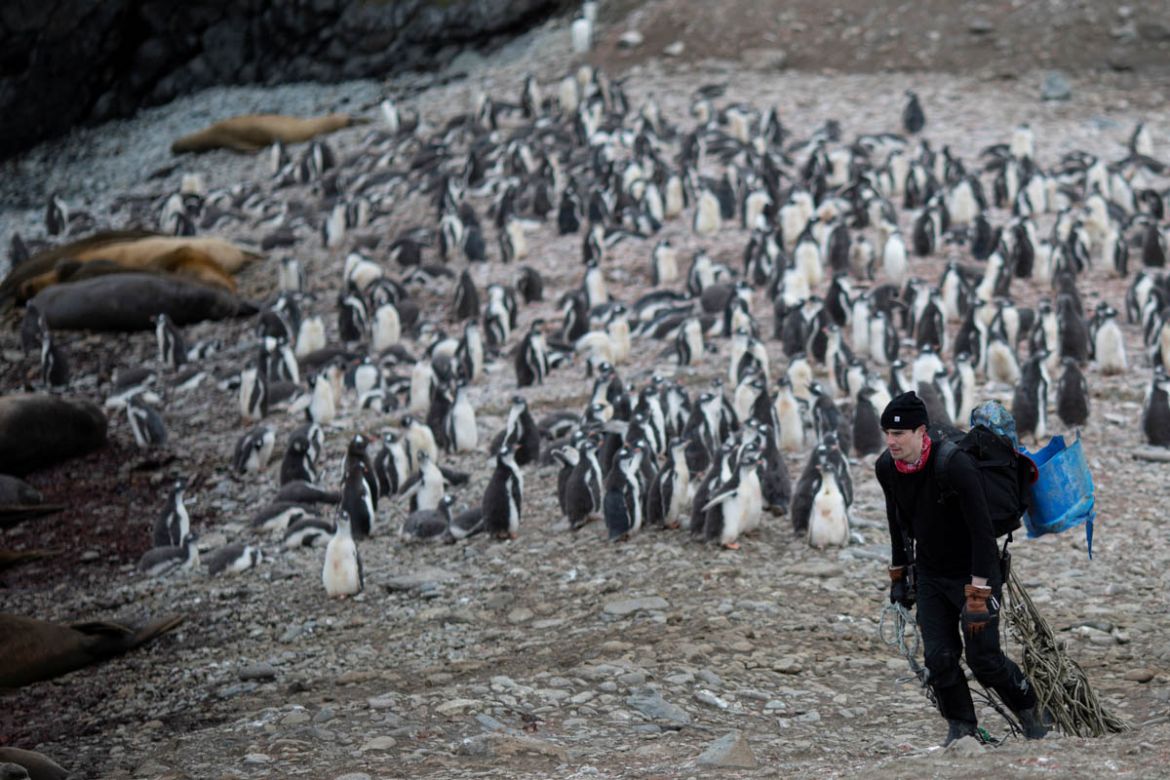In Pictures
In Pictures: Chinstrap penguin population declines in Antarctica
Scientists blame climate change for number of penguins in some colonies in West Antarctica falling by 77 percent.
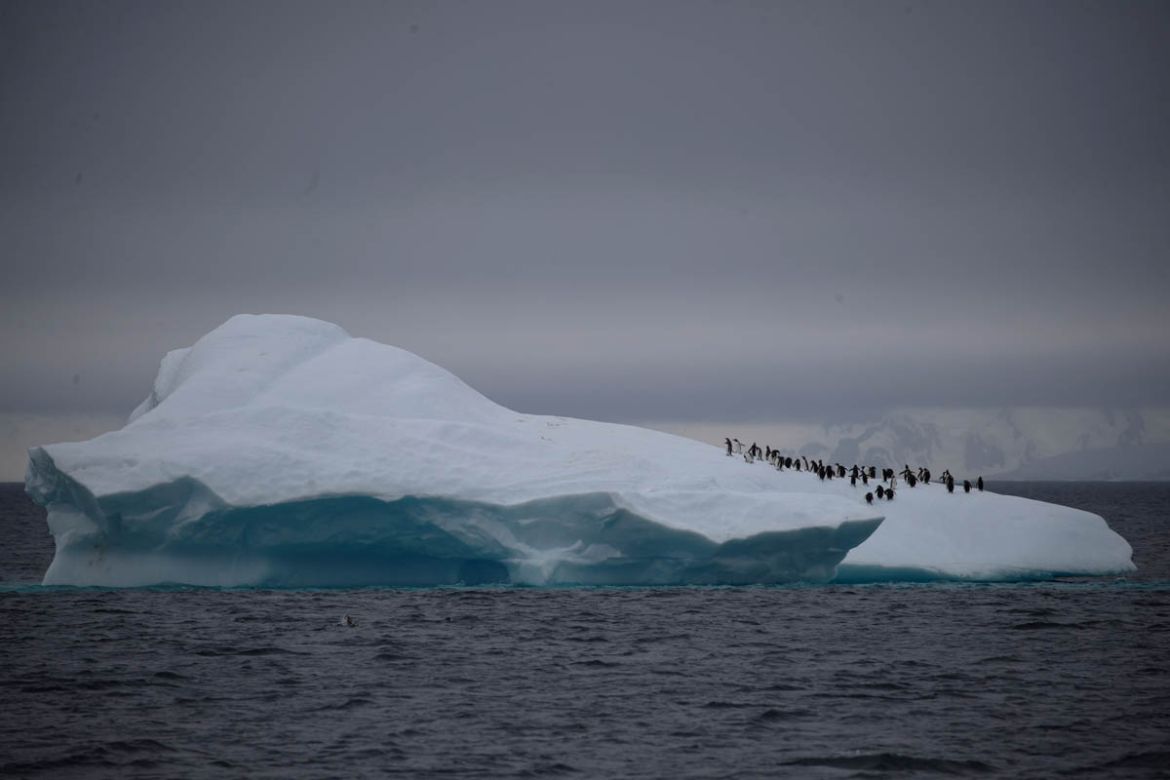
The number of chinstrap penguins in some colonies in West Antarctica has fallen by as much as 77 percent since they were last surveyed in the 1970s, say scientists studying the impact of climate change on the remote region.
The chinstrap penguin, named after the narrow black band under its head, inhabits the islands and shores of the Southern Pacific and Antarctic Oceans and feeds on krill.
“The declines that we have seen are definitely dramatic,” said Steve Forrest, a conservation biologist who joined a team of scientists from two US universities – Stony Brook and Northeastern – on an Antarctic expedition that has just ended.
“Something is happening to the fundamental building blocks of the food chain here. We’ve got less food abundance that’s driving these populations down lower and lower over time and the question is, is that going to continue?”
The number of chinstraps at one important habitat in the region, Elephant Island, has plummeted by around 60 percent since the last survey in 1971 to fewer than 53,000 breeding pairs today, the expedition found.
“While several factors may have a role to play, all the evidence we have points to climate change as being responsible for the changes we are seeing,” said Heather Lynch, associate professor of ecology and evolution at Stony Brook University.
The World Meteorological Organization said last week that a research base in Antarctica recorded the hottest temperature ever for the continent, 18.3 degrees Celsius (64.94 degrees Fahrenheit), as global warming causes an increase in melting of the ice sheets around the South Pole.
Greenpeace is calling on the United Nations to commit to protect 30 percent of the world’s oceans by 2030, a target called for by scientists and a growing number of governments as the minimum needed to halt the damage being done by harmful human activity.
The UN will meet from March 23 to April 3 to try to agree on a global ocean treaty, which could then take years to ratify.
“I think we stand to lose much of what we love … like the penguins from Elephant Island, but I think in the end it’s what kind of world do we want to live in?” Frida Bengtsson, Greenpeace Oceans campaigner, told Reuters news agency. “Our oceans are incredibly important to regulate our global climate.”
